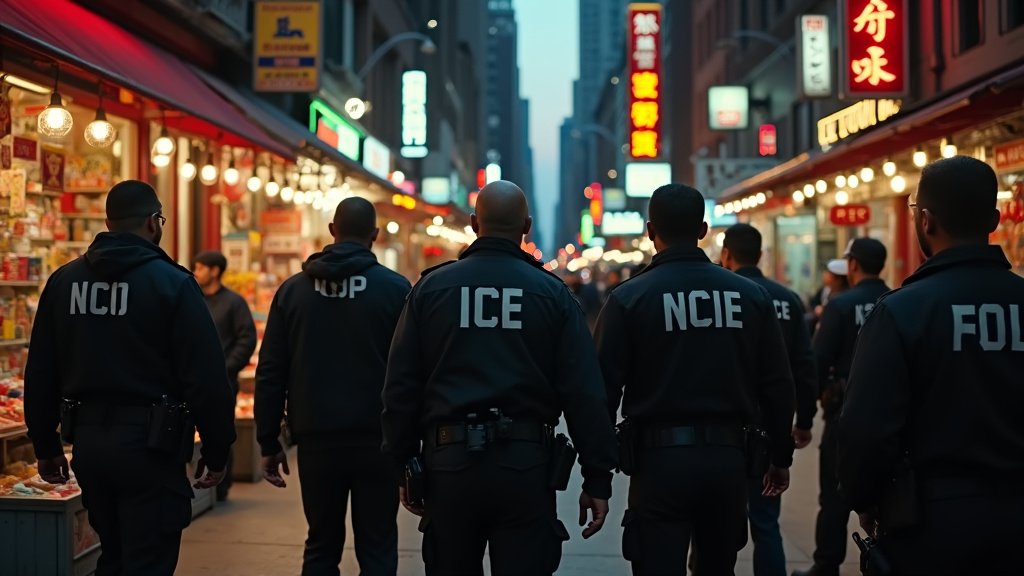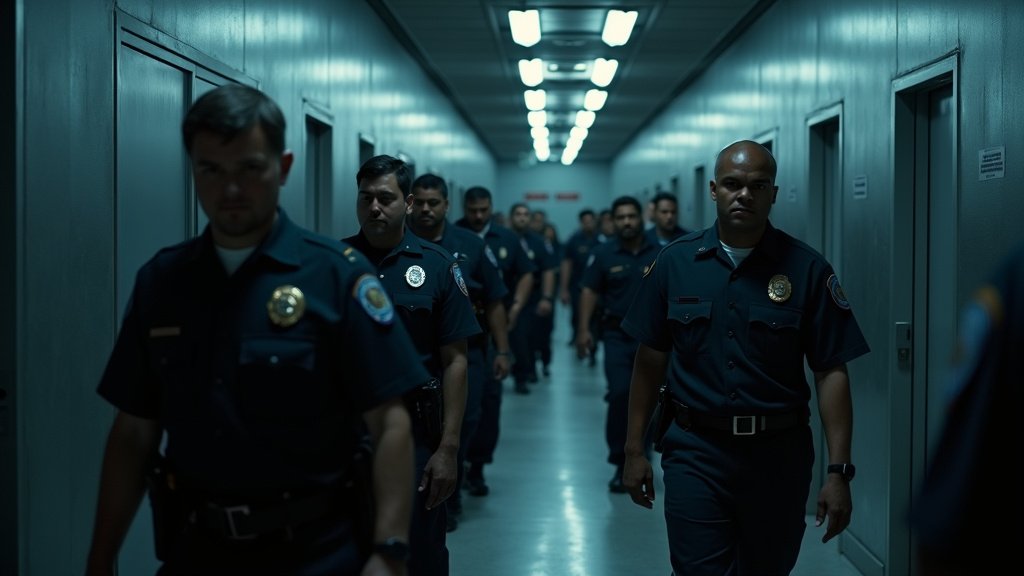A recent Immigration and Customs Enforcement (ICE) operation in Manhattan’s Chinatown has ignited significant controversy, following the detention of four U.S. citizens for nearly 24 hours without charges. The raid, which occurred on Tuesday, October 22, 2025, and targeted criminal activity related to the sale of counterfeit goods, has drawn sharp condemnation from elected officials and prompted an investigation into federal immigration enforcement practices in New York City.
Operation Targets Counterfeit Goods
The targeted, intelligence-driven enforcement operation on Canal Street involved ICE and federal partners, including the FBI, DEA, ATF, IRS-CI, and CBP. According to the Department of Homeland Security (DHS), the focus was on criminal enterprises involved in selling counterfeit merchandise, a well-known issue in the bustling Manhattan neighborhood. Assistant Secretary Tricia McLaughlin stated the operation was based on specific criminal intelligence, not random street sweeps.
U.S. Citizens Detained, Sparking Outrage
Amidst the raid aimed at counterfeit vendors, it was revealed that four U.S. citizens were apprehended and held at 26 Federal Plaza for close to a full day. Congressman Dan Goldman, representing New York’s 10th congressional district which includes Canal Street, vehemently denounced the detentions. “ICE is not allowed to arrest American citizens,” Goldman stated during a press conference, labeling the incident “lawless terror” and an “abuse of power”. He emphasized that the citizens were released without charges, raising serious questions about the legality and justification of their detention. These reports echo broader concerns, as a ProPublica investigation found that over 170 U.S. citizens have been held by immigration agents this year, often detained for days without contact.
ICE’s Stance and Future Enforcement Plans
Acting ICE Director Todd Lyons defended the operation, asserting it was based on specific criminal intelligence and targeting “criminal illegal aliens”. Lyons also indicated that New York City should anticipate an “increase in ICE arrests” moving forward, attributing this to the presence of individuals he described as “criminal illegal aliens” who have allegedly been harbored in the city. He stressed that these enforcement actions are intelligence-driven and not random.
Official Investigations and Accountability Measures
In response to the raid and the detentions, New York Attorney General Letitia James launched an online portal where the public can submit photos and videos of ICE activity. James pledged to thoroughly review submitted materials to investigate allegations of unlawful questioning, detention, or intimidation, vowing that “no one should live in fear or intimidation”. The New York Police Department (NYPD) has explicitly stated its non-involvement in the federal operation, seeking to distance itself from the controversial action. Congressman Goldman has also expressed a desire to form a task force to address such incidents in real-time and previously called for NYPD to hold federal agents accountable for unlawful conduct.
Context of Criminal Histories and Broader Concerns
During the operation, nine undocumented immigrants were taken into custody. The DHS confirmed that these individuals possessed extensive criminal histories, including charges for robbery, burglary, domestic violence, assault, and drug trafficking, among others. This information was provided by ICE, which stated that their operations are focused on egregious criminal alien offenders. However, the detention of U.S. citizens, even if temporary and without charges, highlights ongoing tensions and scrutiny surrounding federal immigration enforcement tactics and accountability in New York City.
Conclusion
The recent ICE raid in Manhattan has underscored critical questions about the scope of federal immigration enforcement powers and the protection of civil rights for all individuals, including U.S. citizens. The establishment of the Attorney General’s portal and the vocal criticism from lawmakers suggest a heightened period of oversight and potential conflict between state and federal authorities regarding immigration news and enforcement actions.





